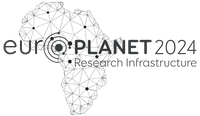Instructors
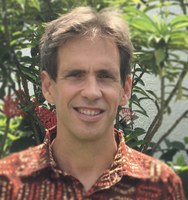
David BARATOUX
Senior Scientist, French National Research Institute for Sustainable Development, France
David Baratoux is Senior Scientist at the French National Research Institute for Sustainable Development (IRD) and a researcher at the laboratory Geosciences Environnement Toulouse. He is currently based at the University Félix Houphouët-Boigny in Côte d'Ivoire (2021-2025). His research interests include impact science, Martian, the geology of Africa, and environmental science in mining environments. Has authored or co-authored more than 100 publications, including several letters to Nature or Nature Geosciences. After an experience of 15 years in the field of Solar System Exploration (member of the ESA Mars Express mission) he dedicated himself to the promotion and development of Planetary Sciences in Africa, with, for instance, the launch of the African Initiative for Planetary and Space Science in 2017. Asteroid 336811 was named "Baratoux" in recognition of his contributions to Mars science and outreach activities.
Teaching-learning requirements
Participants can practice using their own computers. The following software must be installed:
- JMARS (https://jmars.mars.asu.edu/)
- QGIS (https://www.qgis.org/fr/site/forusers/download.html)
- Zotero (https://www.zotero.org/) and open an account (free)
MODULE 1-PLANETARY SURFACE
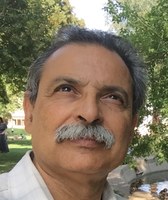
Zouhair BENKHALDOUN
Professor Zouhair Benkhaldoun graduated (PHD) in astrophysics from the university of Nice Sophia Antipolis in France and Cadi Ayyad university of Marrakech. He is also graduated (PHD) in Energetics from University of Provence in Marseille France. In 1985 he founds along with three other researchers the first Astrophysics laboratory in Morocco. He joins the univer- sity of Marrakech in 1992 and founded the laboratory of High Energy Physics and Astrophysics (LPHEA) in 1999. He also works on the creation of the first professional Astronomic Obser- vatory at Oukaimeden inaugurated in 2007 and directs it since then. He founds in 1999 the Association d’Astronomie Amateur de Marrakech-3AM aiming to promote science of the universe towards the large public audience. These works on site testing field allow Morocco to be selected for the site study campaign for the European Extremely Large Telescope (EELT). He has authored or co-authored more than 240 publications in Astronomy and astrophysics field. It has been elected (may 2013) as president of the Moroccan National Committee of Astronomy. He is also Arab Astronomical Society president and Atlas Dark Sky president. He is carrying an ambitious project to build a 2 meters telescope in Morocco.
KEY NOTE SPEAKER
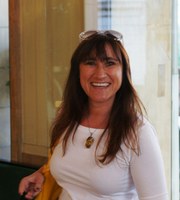
Caterina BOCCATO
Leading Technologist, National Institute of Astrophysics, Italy
Caterina Boccato is a technologist, with a degree in astronomy, at the INAF - Astronomical Observatory of Padua since 2000. She is currently the chief of the INAF Presidency Office for education and public outreach. She manages and coordinates all the public engagement activities of the Institute throughout Italy. She is an Organizing Committee Elected Member of Commission C2 Communicating Astronomy with the Public and the Italian National Outreach Coordinator for the International Astronomical Union - IAU, and the chief of Outreach, media and Corporate Identity Working Group for the European Astrobiology Institute (EAI).
Teaching-learning material:
INAF in 3 minutes
https://docs.google.com/presentation/d/1yAhooOH3PFRmqfBd1lMPrA4NkPKxj3br/edit#slide=id.p1
INVITED SEMINAR LECTURE
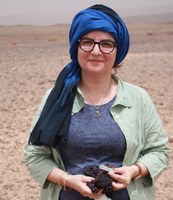
Hasnaa CHENNAOUI AOUDJEHANE
Full Professor, Hassan II University of Casablanca, Morocco
Hasnaa Chennaoui Aoudjehane is the first woman to graduate in meteoritics in Morocco, Arab and African countries. She is director of GAIA Laboratory and Coordinator of the research center, and the name “Chennaoui” has been assigned to to an asteroid in 2017. She received several honors among other the Paul Doistau-Émile Blutet Prize in 2009, in 2013 selected for the US International Visitors Leadership Program (IVLP) and in 2014 for the Women in Science Hall of Fame Award by the US Department of State. In 2018, she was elected Fellow of the Meteoritical Society in 2018. Hasnaa has been a member of the Meteoritical Society for two decades. She served on the Nomenclature Committee of the Meteoritical Society. In April 2019 she created the ATTARIK Foundation, an NGO dedicated to promoting planetary sciences.
LAB. ACTIVITIES
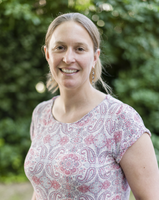
Vinciane DEBAILLE
Professor, Free University of Brussels, Belgium
Vinciane Debaille is FNRS Senior Research Associate and Professor at the Université libre de Bruxelles in Brussels, Belgium. Her main research interests are related to the formation of the solar system and the evolution of the terrestrial planets, including Mars and the ancient Earth, by studying the isotope compositions of meteorites and Archean samples. For that, she is using long-lived (Sm-Nd, Lu-Hf, Pb-Pb, Rb-Sr, Re-Os), short-lived (142Nd, 26Mg) and stables (Fe, Cu, Zn, Ga) isotopes. She is participating in the Mars2020 program as Return Sample Scientist. She is a curator of the Antarctic Belgian meteorite collection.
MODULE 4-COSMOCHEMISTRY
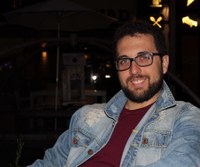
Federico DI GIACOMO
Scientist, National Institute of Astrophysics, Italy
Federico Di Giacomo obtained his degree in Astrophysics and Cosmology at the University of Bologna in 2013. Since 2015 he has been working at INAF, National Institut for Astrophysics, in the field of teaching and dissemination. He currently holds a research grant at INAF Astronomical Observatory of Padova, where he deals with the enhancement of INAF scientific heritage, as well as various teaching and outreach activities. In particular, this year Federico has been working on a research project devoted to the study of a few stellar catalogues, which were made in Padova in the second half of the nineteenth century. Federico carries out many other teaching and dissemination activities in the field of Astronomy, and Science in general.
LAB. ACTIVITIES
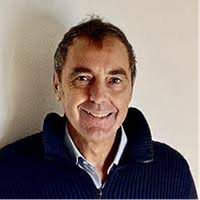
Luigi FOLCO
Associate Professor, University of Pisa, Italy
Luigi Folco (PhD, Open University, UK) is a Professor at the University of Pisa where he holds the Planetary Geology, Cosmochemistry, and Geowriting courses. For over 30 years his research interests have focused on the cosmochemistry of planetary materials (meteorites, micrometeorites) and the petrology of impact rocks, integrating mineralogical, geochemical and isotopic analyses. He has taken part in ten meteorite search expeditions to Antarctica and, since 2009, he has been the national coordinator of the “Antarctic Meteorites” project within the framework of the Italian National Program for Antarctic Research (PNRA). The International Astronomical Union Asteroid named Main Belt 7006 Folco asteroid after him for his contribution to research on planetary materials.
MODULE 3-METEORITES
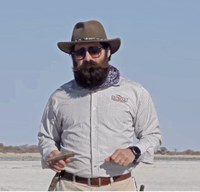
Fulvio FRANCHI
Associate Professor, Botswana International University of Science and Technology (BIUST)
I am currently holding the position of Associate Professor in Sedimentology at BIUST in Botswana, and I am the Coordinator of the Pan African Planetary and Space Science Network (PAPSSN) and FAST4Future, both EU-funded projects promoting research and education in Space Science in Africa. After my PhD in Earth Science studying the astrobiological potential of carbonate mounds in the Moroccan Sahara, I have pursued a career at the crossroad between planetary science and carbonate sedimentology with a clear interest in biogeochemical pathways and astrobiology. I have successfully participated in NERC projects and led my institution into the Europlanet 2024 RI funded by INFRAIA Horizon2020. I coordinate the planetary field analogue Makgadikgadi Pans in Botswana as part of the Europlanet2024 RI and successfully organized more than 20 field trips in Southern-Africa. In 2018 I led the international effort for the discovery of the fragments of asteroid 2018 LA and took part in the analytical work that led to the characterization of the Motopi Pan Meteorite.
INVITED SEMINAR LECTURE
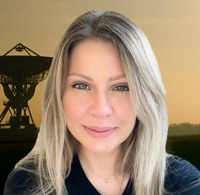
Daria GUIDETTI
Scientist, National Institute of Astrophysics, Italy
Daria Guidetti is an astrophysicist at the INAF - Institute of Radio Astronomy with a PhD in extragalactic magnetic fields and a post-graduate diploma in Journalism and Institutional Communication of Science with a thesis on gender stereotypes in science. After years of research activities, she devoted an increasing fraction of her time to institutional and freelance science communication. She currently manages and coordinates Sorvegliati Spaziali, a INAF national outreach project on Planetary Defense. She is a representative of Italy in the European Union Space Surveillance and Tracking dissemination activities and in the SKA Outreach Network. Her scicomm experiences include the outreach TV program “Destinazione Spazio” on a national channel, which she wrote and presented in 2018, and her first book published in 2019 on Magnetic Fields in the Universe. She was awarded the de Paoli and Marchetti National Prize for her science outreach activities and with the Ferraro National Prize for her PhD thesis on extragalactic magnetic fields.
INVITED SEMINAR LECTURE
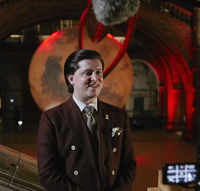
Keyron HICKMAN-LEWIS
Research Fellow, Natural History Museum, London, UK
Keyron Hickman-Lewis is a UK Space Agency Aurora Research Fellow at the Natural History Museum, London. His main research interests life in the co-evolution of life and environments throughout the Precambrian, biosignature detection in geological materials, high-resolution in situ biogeochemical studies of cellular microbial fossils, microbial mats, and microbialites and astrobiology with relevance to Mars. He is a Returned Sample Science Participating Scientist on the Mars 2020 Perseverance rover mission, working as part of an international team to study the geology of Jezero crater and select and characterise the geological samples that will be collected for return to Earth in the 2030s.
INVITED SEMINAR LECTURE
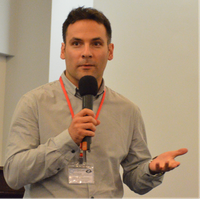
Stavro Lambrov IVANOVSKI
Scientist, National Institute of Astrophysics, Italy
Stavro L. Ivanovski is a researcher at INAF – Osservatorio Astronomico di Trieste and an Adjunct Professor at the University of Trieste. He is a mathematician and planetary scientist and his interests spread in various fields from small bodies and protoplanetary disks to planets and astrobiology. His expertise includes numerical modelling of non-spherical dust dynamics in the cometary atmosphere, magnetohydrodynamic instabilities at magnetospheres of Earth and Mercury, magnetoconvection simulations of sunspots, star-planet interaction and habitability in planetary systems. He has been working on several space missions such as DART/LICIAcube, Rosetta, BepiColombo, Comet Interceptor, Hera and Ariel. He is strongly involved in planetary defence activities with his ejecta dust plume modelling the impact of DART on Dimorphos and as a Lead of the Ejecta Working Group of the Italian space mission LICIACube. As a graduated actor with theatre experience, he has a strong commitment to public engagement and outreach. The asteroid 1981 EP12 is named 11802 Ivanovski in his honour.
INVITED SEMINAR LECTURE
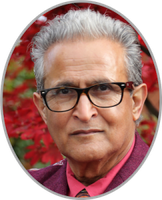
Sohan JHEETA
Independent Scientist, NORCEL
I am UK based independent science educator and communicator as well as a research scientist. I attained my PhD in astrochemistry from the Open University, UK in 2010. I have published over forty peer-reviewed scientific papers and four book chapters. Further, I have published in 24 journals world-wide and have been a guest editor on five occasions. In addition, I have delivered over 125 oral presentations internationally; nineteen as a keynote speaker and presented 35 posters as well as visiting over 40 educational establishments. I am founder and Chairman of the Network of Researchers on the Chemical Emergence of Life (NoRCEL) which is the umbrella organisation for the innovative initiatives: Blue Earth Project; Astroscience Exploration Network (focussing on sub-Saharan Africa) and the Latin American Hub. Currently, I am working towards establishing an astroscience educational programme as a joint effort in conjunction with the Nigerian Spacy Agency (NASRDA), the University of Lafia and the University of Nigeria, Nsukka (UNN).
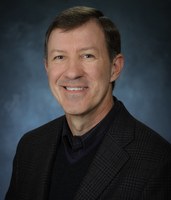
David A. KRING
Principal Scientist, Lunar and Planetary Institute, Texas, USA
The Center for Lunar Science and Exploration is led by Dr. David A. Kring. Kring received his Ph.D. in earth and planetary sciences from Harvard University. He specializes in impact cratering processes produced when asteroids and comets collide with planetary surfaces. Kring is perhaps best known for his work with the discovery of the Chicxulub impact crater, which he linked to the K-T boundary mass extinction of dinosaurs and over half of the plants and animals that existed on Earth 65 million years ago. He has also studied the environmental effects of impact cratering and shown how impact processes can affect both the geological and biological evolution of a planet. This work includes studies of the dramatic environmental perturbations (e.g., prolonged darkness, acid rain, wildfires) expected after the Chicxulub impact event, plus studies of several smaller local, regional, and global effects produced by the thousands of impact events that affected Earth after life evolved.
Kring has been actively engaged in communicating scientific issues to the public through a variety of print, radio, and television forums, including popular science books, magazine articles, and science documentaries for the Discovery Channel, Learning Channel, History Channel, PBS, Channel 4 (U.K), and NHK (Japan).
INVITED SEMINAR LECTURE
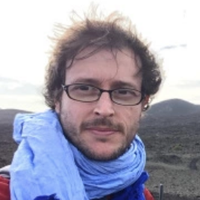
Angelo Pio ROSSI
Scientist, Constructor University of Bremen, Germany
Angelo Pio Rossi is a planetary geologist. He graduated from Università d’Annunzio in Chieti-Pescara in 2000, and since then worked on Mars geology, impact cratering, and terrestrial analogues. After appointments at the European Space Agency (NL) and the International Space Science Institute (CH), he is now based at Constructor University (Bremen). Member of a few mission experiment teams (e.g. ESA MEX HRSC, MARSIS), he co-founded OpenPlanetary, supported various COSPAR Capacity Building workshops, and he coordinates the Virtual Access activity of the Europlanet Research Infrastructure.
Teaching-learning material:
https://aprossi.eu/content/impact-cratering/
Additional information:
https://github.com/europlanet-gmap/impact-cratering
MODULE 2-IMPACT CRATERS
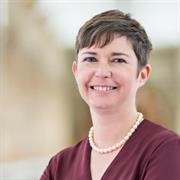
Caroline Louise SMITH
Head of Earth Sciences Collections at the Natural History Museum, London, UK
I am Head of Earth Sciences Collections and Principal Curator of Meteorites at the Natural History Museum and I have been researching meteorites since the late 1990s. My experience and expertise in curation and collections care have been recognised by the award of a prestigious Aurora Fellowship from the UK Space Agency and consultancy work with industrial, academic and international space agency partners studying and planning for future Solar System sample return missions. Since 2019 I am an Honorary Professor at the University of Glasgow (UK), School of Geographical and Earth Sciences. In the summer of 2018, I was greatly honoured to have asteroid (7635) Carolinesmith named after me.
